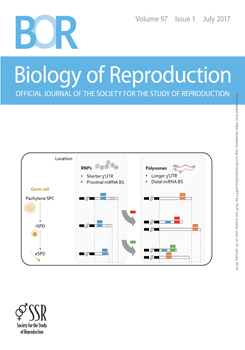Yes-associated protein (YAP) and WW-containing transcription regulator 1 (WWTR1) are two functionally redundant transcriptional regulators that are downstream effectors of the Hippo signaling pathway, and that act as major regulators of cell growth and differentiation. To elucidate their role in Sertoli cells, primary Sertoli cell culture from Yapflox/flox; Wwtr1flox/flox animals were infected with a Cre recombinase-expressing adenovirus. Concomitant inactivation of Yap and Wwtr1 resulted in a decrease in the mRNA levels of the male sex differentiation genes Dhh, Dmrt1, Sox9, and Wt1, whereas those of genes involved in female differentiation (Wnt4, Rspo1, and Foxl2) were induced. SOX9, FOXL2, and WNT4 proteins were regulated in the same manner as their mRNAs in response to loss of YAP and WWTR1. To further characterize the role of YAP and WWTR1 in Sertoli cells, we generated a mouse model (Yapflox/flox; Wwtr1flox/flox; Amhcre/+) in which Yap and Wwtr1 were conditionally deleted in Sertoli cells. An increase in the number of apoptotic cells was observed in the seminiferous tubules of 4 dpp mutant mice, leading to a reduction in testis weights and a decrease in the number of Sertoli cells in adult animals. Gene expression analyses of testes from 4 dpp Yapflox/flox; Wwtr1flox/flox; Amhcre/+ mice showed that Sertoli cell differentiation is initially altered, as Dhh, Dmrt1, and Sox9 mRNA levels were downregulated, whereas Wnt4 mRNA levels were increased. However, expression of these genes was not changed in older animals. Together, these results suggest a novel role of the Hippo signaling pathway in the mechanisms of sex differentiation.
Summary Sentence
YAP and WWTR1 are required for the maintenance of Sertoli cell differentiation and the suppression of the female sex determination pathway.





